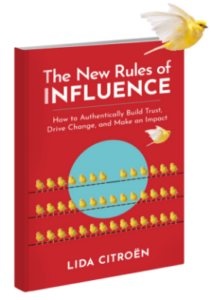The following is an excerpt from Lida’s upcoming book, “Reputation 360: Creating power through personal branding”. Visit www.LIDA360.com for information about the book’s release and other announcements.
Tom Peters introduced us to the concept of the personal brand in an article he wrote in Fast Company Magazine in the mid-1970s. The article pointed to the fact that we spend billions and billions of dollars branding corporations, products and services, and yet we don’t teach the power of individuals to own their reputations and to create an expectation of experience with their target audience.
Since then, the term personal branding has come to mean many things. Some people call personal branding the technique you use to package yourself. Others say it’s what public relations professionals do for celebrities to make them marketable as spokespeople. Still others refer to interviewing skills, image consulting and even portrait photography as personal branding.
Most of these descriptions miss the mark. Personal branding is not just about designing “packaging” for yourself or selling yourself as something you are not. Your personal brand is your reputation. It identifies what makes you unique and clearly communicates that uniqueness to an audience that needs you.
A brand is not something you can just put on paper, like a logo or a glossy photo; it has to be expressed in your actions. A brand needs to represent a set of values, promises and expectations and meet those expectations at nearly every step. Branding gives experience to something intangible; it gives names to the qualities I feel when I work or interact with you. Branding is all about feelings and emotions. Unlike marketing, which is when we direct an audience to action (buy now, act fast, use this coupon, call today…), branding sets the emotional expectations and promises between you and your target audience.
Everyone has a personal brand, because we’re all known for something. You may not be known for what you want to be known for, but you are known for something. Your reputation may have been the guiding force behind most of your success to date, or it may have been what has been holding you back from achieving your dreams.
Ultimately, your brand is your legacy. It is the way you are known today, and how you will be remembered when you leave. Your legacy is the most real representation of how you lived, behaved and interacted with others, and how they felt about you.

